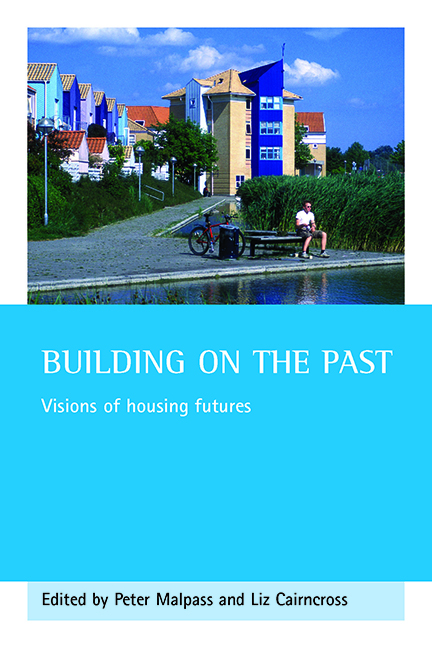Book contents
- Frontmatter
- Dedication
- Contents
- List of tables, figures and photographs
- Foreword
- Acknowledgements
- List of contributors
- one Introduction
- two Moving with the times: changing frameworks for housing research and policy
- three A new vision for UK housing?
- four Housing demand, supply and the geography of inequality
- five Understanding the drivers of housing market change in Britain’s postindustrial cities
- six Affordability comes of age
- seven Mob mentality: the threat to community sustainability from the search for safety
- eight Housing and the ageing population
- nine Tenant futures: the future of tenants in social housing
- ten Democracy and development
- eleven Conclusion
- Index
- Also available from The Policy Press
ten - Democracy and development
Published online by Cambridge University Press: 15 January 2022
- Frontmatter
- Dedication
- Contents
- List of tables, figures and photographs
- Foreword
- Acknowledgements
- List of contributors
- one Introduction
- two Moving with the times: changing frameworks for housing research and policy
- three A new vision for UK housing?
- four Housing demand, supply and the geography of inequality
- five Understanding the drivers of housing market change in Britain’s postindustrial cities
- six Affordability comes of age
- seven Mob mentality: the threat to community sustainability from the search for safety
- eight Housing and the ageing population
- nine Tenant futures: the future of tenants in social housing
- ten Democracy and development
- eleven Conclusion
- Index
- Also available from The Policy Press
Summary
Introduction
Earlier chapters have explored a range of factors – affordability, market forces, demographic change and policy action – that affect or are likely to affect housing futures. In this chapter we develop the discussion of consumer preferences begun by Phil Morgan (Chapter Nine), looking at their likely impact in future years. The aim is to report a number of innovative studies that have explored the potential for stakeholders to discuss how towns and cities might develop over time. The chapter outlines novel methodologies for investigating stakeholder views, and reports the findings of studies in different parts of England. An important outcome of the research was the demonstration that consumers of housing and urban environments not only have views but are able to express them in ways that could lead to better policies.
In England, London and the South East are prospering while manufacturing towns in the Midlands and the North have declined. Imbalances of growth and decline mean that there is a shortage of housing in the South and an excess in the North. What is to be done? And how can citizens be involved in decision making? In particular, how can an effective voice be given to the very broad range of stakeholders involved in and affected by the development and regeneration of our towns and cities?
This chapter draws lessons from three housing futures studies conducted by Cambridge Architectural Research (CAR) and Eclipse Research Consultants. The aim of each of them was to create a platform to enable stakeholders to discuss meaningfully the future of their particular neighbourhoods, towns and regions. The first of these studies looked at Cambridge, where housing demand and supply problems are acute as a result of strong economic growth. Cambridge is located in one of the designated growth areas in the South East, and as such it experiences quite different housing market pressures from those in northern cities, as discussed by Brendan Nevin and Philip Leather in Chapter Five.
Cambridge Futures
Cambridge Futures was a unique example of the marriage of applied research and public policy. Its aim was to provide a forum for considering options that could engage with and gain the support of a wide coalition of interests in the Cambridge region.
- Type
- Chapter
- Information
- Building on the PastVisions of Housing Futures, pp. 239 - 262Publisher: Bristol University PressPrint publication year: 2006



